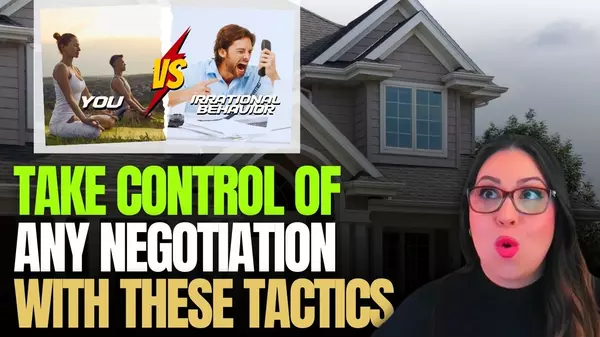Understanding Title Insurance in California Real Estate: What Every Buyer & Seller Should Know

When you’re buying or selling a home in California, there’s one step in the process that often gets overlooked — yet it’s absolutely essential in every transaction: Title Insurance. Think of it as your property’s “clean bill of health.” Without it, buyers could unknowingly inherit legal or financial
Read MoreHow to Buy a House in Southern California: The Ultimate 8-Part Guide for First-Time Buyers

Buying your first home in Southern California can feel overwhelming—sky-high prices, complex terms, and endless listings on Zillow. Sound familiar? You're not alone. That’s why I created a free, step-by-step video series to help you understand each stage of the home-buying journey with clarity and c
Read More-

Buying Your First Home? You’re Not Alone! Buying your first home is exciting—but it can also feel overwhelming. From choosing the right Realtor® and gathering loan documents to reviewing home inspections and negotiating repairs, there’s a lot to navigate. Whether you’re a first-time homebuyer or jus
Read More How to Find a Reliable Home Inspector: Essential Tips from an Expert

Introduction: When buying or selling a home, one of the most critical steps is the home inspection. It can reveal necessary repairs and potential safety issues that could cost you dearly if missed. That's why having a reliable home inspector is invaluable. In this blog, we tap into the expertise of
Read More2025 California Real Estate Laws Explained: What You Need to Know

California’s real estate market is seeing significant updates in 2025 with new laws affecting homeowners, renters, landlords, buyers, and sellers alike. From accessory dwelling units (ADUs) to tenant protections, these changes aim to address California’s evolving housing landscape. In this blog post
Read MoreMastering Emotional Control in Negotiations: Why People Attack and How to Stay Calm

Negotiations can be high-stress environments, especially when emotions run high. Whether you're discussing real estate transactions or any challenging conversation, maintaining emotional control is key. As someone who has mastered the art of staying calm and collected in negotiations, I’ve learned
Read MoreHow to Avoid Wire Fraud When Buying Your First Home

Imagine this: you’re about to close escrow on your dream home, and all the money you saved for your down payment vanishes. Unfortunately, this is a growing reality for many first-time homebuyers. Wire fraud in real estate transactions is on the rise, and it can turn your homebuying experience into
Read MoreCalifornia’s Insurance Crisis: How Homeowners, Buyers, and Sellers Can Protect Their Homes

California’s real estate market is facing a growing challenge—insurance companies are pulling out of the state, and wildfires are making it harder for homeowners to find coverage. If you’re a homeowner, future homebuyer, or someone looking to sell, you need to be informed about these changes to pr
Read MoreNavigating Property Values: How Progression and Regression Shape Your Real Estate Investment

Have you ever wondered why some homes increase in value over the years while others don't? You might think it's all about location—and you're right. There also something else...it's not just about where you are; it's about who your neighbors are. In real estate, two crucial concepts to understan
Read MoreEssential Guide to Property and Supplemental Taxes for First-Time Home Buyers

Buying your first home is an exciting journey, but it comes with its share of responsibilities—it's important to understand property taxes AND supplemental taxes. These taxes can significantly affect your budget, and it’s crucial to grasp their implications to avoid any surprises. Understanding Prop
Read MoreDiscover the OneHome Advantage: Your Portal to Real Estate Excellence

In the fast-paced world of real estate, access to accurate and up-to-date property listings is crucial. OneHome, a client portal directly connected to the Multiple Listing Service (MLS), offers an unparalleled edge. Unlike mainstream real estate websites such as Zillow and Redfin, OneHome provides
Read MoreAvoid These 3 Common Mistakes as a First-Time Home Buyer

As exciting as it is, purchasing your first home can also be overwhelming, especially if you're navigating the process for the first time. To help you embark on this journey with confidence, it's crucial to be aware of common pitfalls that first-time home buyers often encounter. In this post, we'll
Read More
Categories
Recent Posts











